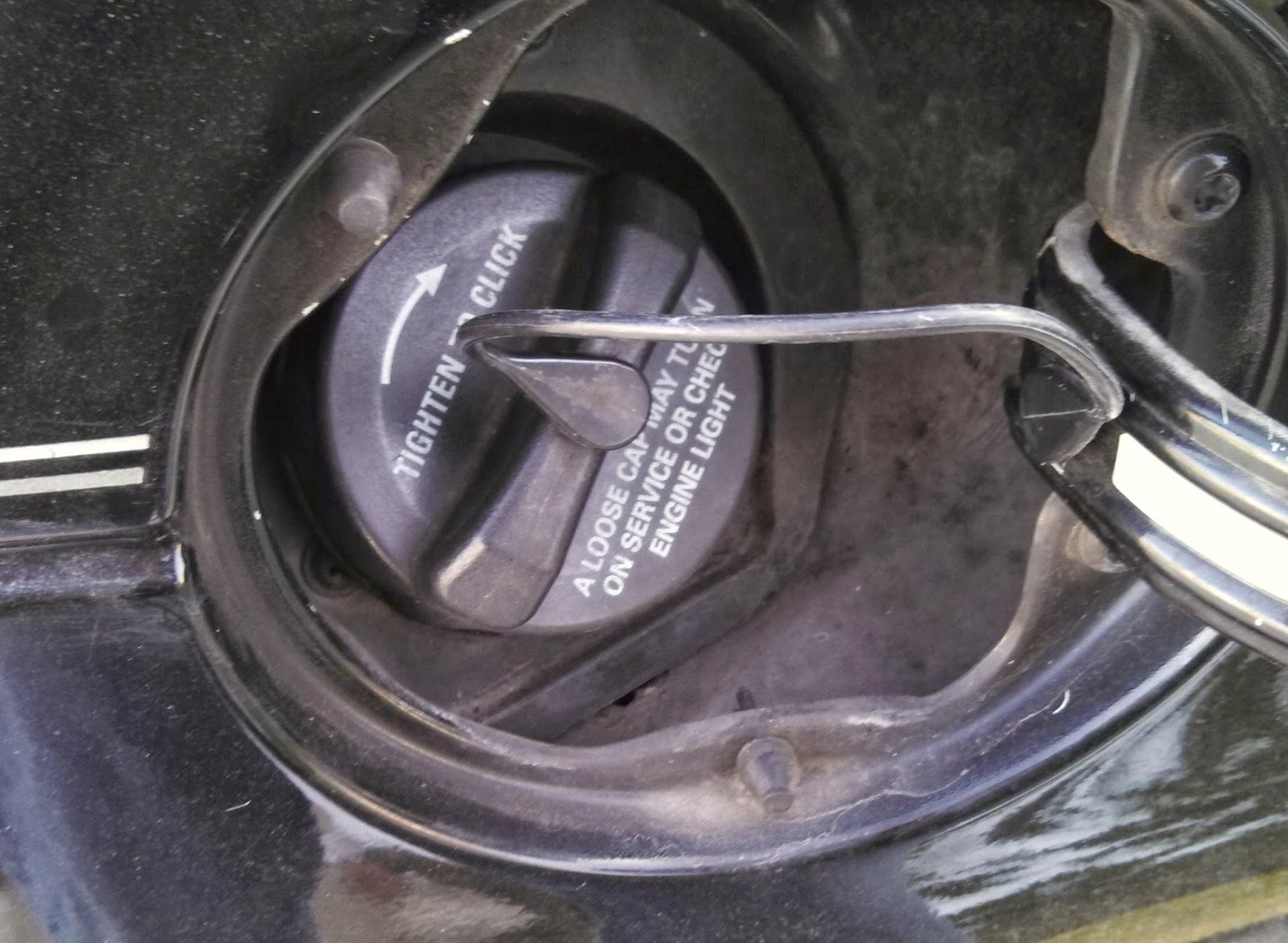Decoding the Honda Pilot's Fuel Cap Warning
That subtle glow on your Honda Pilot's dashboard – the check fuel cap warning – might seem like a minor inconvenience, a fleeting flicker in your otherwise smooth driving experience. But dismissing it as a mere technical hiccup could be a costly mistake. This seemingly small issue can have a ripple effect, impacting not only your vehicle's performance but also your pocketbook.
The check fuel cap warning is more than just an annoying light. It’s a communication from your Honda Pilot, a signal that something isn’t quite right within its intricate system. Ignoring this message could lead to more significant problems down the road, transforming a simple fix into a complex and potentially expensive repair.
In essence, the Honda Pilot fuel cap warning is triggered when the vehicle's onboard diagnostic system detects a leak in the fuel system. This leak is often due to a loose, damaged, or missing fuel cap. A properly sealed fuel cap is crucial for maintaining the correct pressure within the fuel tank. This pressure is essential for optimal engine performance and fuel efficiency.
The history of the fuel cap warning light goes hand in hand with the development of onboard diagnostic systems (OBD). As vehicles became more complex, the need for a system to monitor and alert drivers of potential problems became increasingly important. The check fuel cap warning emerged as a key component of this system, providing a simple yet effective way to identify a common source of fuel system leaks.
The importance of heeding the Honda Pilot’s fuel cap warning cannot be overstated. A loose fuel cap can lead to fuel evaporation, releasing harmful vapors into the atmosphere. It can also negatively affect your fuel economy, as a properly sealed system is crucial for efficient combustion. Furthermore, a compromised fuel system can trigger other warning lights, potentially masking more serious underlying issues.
One common issue associated with a Honda Pilot fuel cap warning is a faulty fuel cap. The cap itself might be cracked or damaged, preventing a proper seal. The sealing gasket inside the cap can also deteriorate over time, leading to leaks. Another potential issue is a cross-threaded cap, which occurs when the cap isn't screwed on straight and damages the threads on the fuel tank neck.
Tightening the fuel cap is often the simplest solution. Ensure it clicks several times to confirm a secure seal. If the warning persists after tightening, try restarting the engine. The onboard diagnostic system might need a cycle to clear the warning. If the light remains on after several driving cycles, it’s a good idea to inspect the fuel cap for visible damage.
Benefit 1: Improved Fuel Efficiency: A properly sealed fuel system ensures optimal fuel combustion, maximizing your mileage and saving you money at the pump. For example, a loose fuel cap can decrease fuel efficiency by as much as 1-2%.
Benefit 2: Reduced Emissions: A tight fuel cap prevents fuel vapors from escaping into the atmosphere, minimizing your environmental impact and contributing to cleaner air. This helps reduce the release of volatile organic compounds (VOCs), which contribute to smog formation.
Benefit 3: Prevents Costly Repairs: Addressing a fuel cap issue promptly can prevent more serious problems, such as damage to the evaporative emissions system, which can lead to expensive repairs down the line.
Action Plan: 1. Check the Fuel Cap: Inspect the cap for visible damage, cracks, or a deteriorated gasket. 2. Tighten the Cap: Ensure it clicks several times to confirm a tight seal. 3. Restart the Engine: Allow the onboard diagnostic system to reset. 4. Seek Professional Help: If the warning persists, consult a qualified mechanic.
Advantages and Disadvantages of Addressing the Fuel Cap Warning
| Advantages | Disadvantages |
|---|---|
| Better fuel economy | Can be a minor inconvenience to check and tighten |
| Reduced emissions | May require purchasing a new fuel cap |
| Prevents costly repairs |
FAQ 1: Why is my check fuel cap light on? A loose, damaged, or missing fuel cap is the most common cause.
FAQ 2: Will the light go off on its own? Sometimes, after tightening the cap and driving for a few cycles.
FAQ 3: What if the light stays on? Inspect the cap and consider replacement. If the issue persists, consult a mechanic.
Tip: Regularly inspect your fuel cap for wear and tear. Replace it if necessary.
The seemingly insignificant check fuel cap warning on your Honda Pilot holds significant implications for your vehicle's performance, your wallet, and the environment. Understanding the cause, solutions, and preventative measures associated with this warning empowers you to maintain your vehicle effectively, ensuring optimal fuel efficiency, minimizing emissions, and preventing costly repairs. By paying attention to this small detail, you contribute to a smoother, more economical, and environmentally conscious driving experience. Don’t ignore that little light – it’s speaking to you for a reason. Addressing it promptly can save you time, money, and contribute to a healthier planet.
Flipping the script normally closed limit switches wired open
Unlocking potential the impact of bantuan zakat pendidikan maidam
Ledger enquirer obituaries today search














